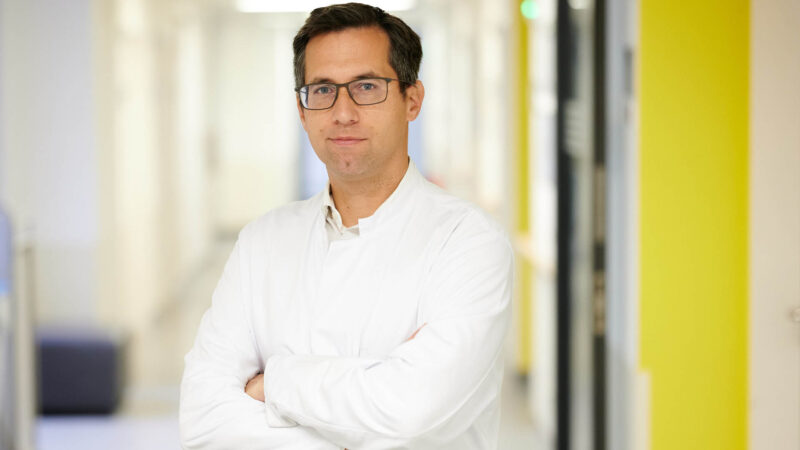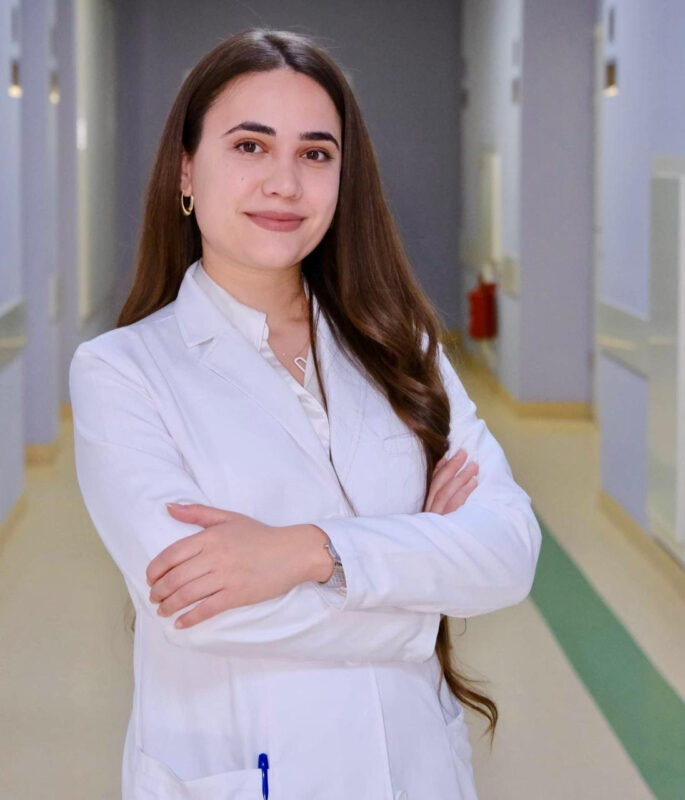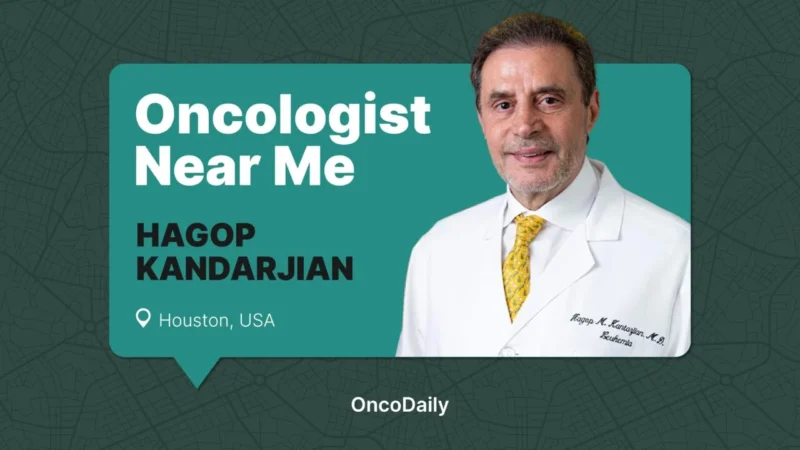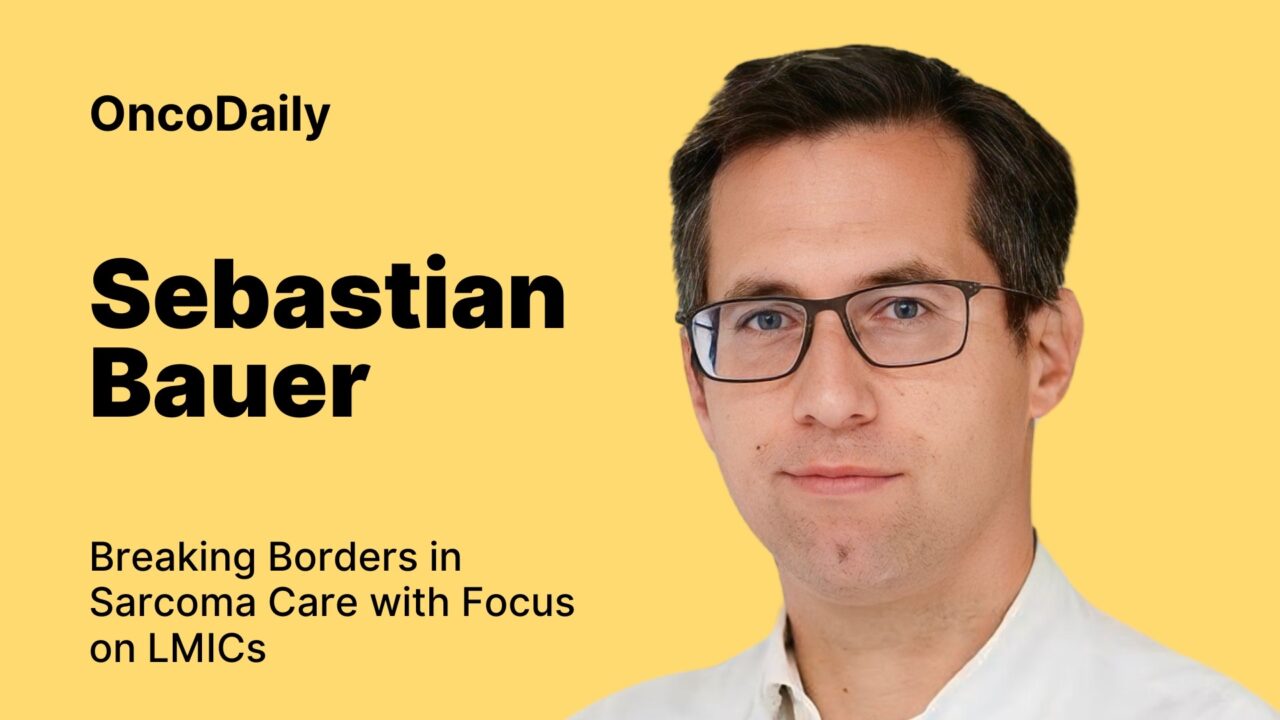Global disparities in cancer care are stark, with the majority of new cancer cases and deaths occurring in low- and middle-income countries (LMICs), where access to modern diagnostics, treatments, and supportive care remains limited due to economic and infrastructural challenges. These inequities lead to higher mortality rates and poorer outcomes compared to high-income countries, where advanced therapies and early detection are more accessible. International collaboration and knowledge exchange are critical to bridging these gaps by providing education, training, and resource sharing to healthcare professionals in LMICs. Such efforts aim to improve cancer control, enhance treatment quality, and reduce disparities globally.
Professor Sebastian Bauer, Director of the Sarcoma Center at the West German Cancer Center (WTZ Essen), exemplifies this commitment through programs like the Medical Observership Program, which fosters international partnerships and capacity building. WTZ Essen serves as a leading hub for translational oncology research and clinical excellence, actively supporting oncologists from middle-income countries by offering hands-on training and mentorship to improve cancer care worldwide.

Professor Sebastian Bauer: Expert in Sarcoma and Cancer Research
Prof. Dr. med. Sebastian Bauer was born on October 2, 1973, in Konstanz, Germany. He earned his medical degree from Julius-Maximilians-University Würzburg between 1993 and 1999, completing his MD thesis in cardiovascular research during that time. Following medical school, he completed his residency in Internal Medicine at University Hospital Essen from 1999 to 2003. He then pursued a postdoctoral fellowship at Brigham and Women’s Hospital, Harvard Medical School in Boston between 2003 and 2005. Returning to Germany, he completed his residency and fellowship in Medical Oncology at University Hospital Essen from 2005 to 2009, and earned his habilitation (Venia legendi) in Internal Medicine at the University of Duisburg-Essen in 2009.
Currently, Prof. Bauer serves as the Director of the Sarcoma Center at the West German Cancer Center (WTZ) at University Hospital Essen. He is also the Chair of Translational Oncology, focusing on personalized cancer therapy, and heads the Laboratory of Translational Sarcoma Research. Additionally, he works as an attending physician in the Department of Medical Oncology at the same institution.
His expertise lies primarily in sarcomas, with a special focus on gastrointestinal stromal tumors (GIST). His research encompasses molecular and genetic signaling pathways in soft-tissue sarcomas, the development and clinical evaluation of targeted small-molecule kinase inhibitors, and the establishment and characterization of patient-derived sarcoma cell lines and xenografts. Prof. Bauer is deeply involved in both preclinical and clinical studies aimed at advancing novel therapies for sarcoma patients.
In terms of leadership and international collaboration, he is an active member of major oncology societies, including serving as a faculty member for sarcoma at the European Society for Medical Oncology (ESMO) since 2015 and as an invited speaker for the sarcoma track at the American Society of Clinical Oncology (ASCO) since 2016. He chaired the German Sarcoma Trial Working Group Steering Committee from 2017 to 2019 and has been principal investigator and coordinator for multiple international clinical trials in sarcoma and GIST. His work bridges laboratory research with clinical applications, and he actively participates in international research collaborations and capacity-building initiatives in oncology.
His contributions to sarcoma research and patient care have been recognized with awards such as the GIST Prize in 2015. Moreover, he supports international observership programs and collaborative efforts aimed at improving sarcoma care globally.
International Collaboration and the WTZ Network
The Medical Observership Program 2023, supported by the German Ministry of Health, aims to provide healthcare professionals from middle-income countries with advanced clinical training and exposure to cutting-edge oncology practices. The program is structured as a collaborative initiative between the West German Cancer Center (WTZ) in Essen and the WTZ network in Münster, alongside international partners such as Yerevan State Medical University and the Mikayelyan Institute of Surgery. This collaboration ensures a comprehensive educational experience combining interdisciplinary tumor treatment, translational research, and clinical care.
Prof. Dr. Sebastian Bauer, Director of the Sarcoma Center at WTZ Essen, plays a central role in organizing and mentoring participants. His team oversees the clinical observerships, providing guidance, facilitating access to specialized departments, and supporting observers throughout their training. The program offers participants hands-on learning opportunities in sarcoma and other complex oncological conditions, emphasizing personalized medicine and multidisciplinary approaches.
Travel and accommodation expenses for the observers are covered by the program, removing financial barriers and enabling participants to focus fully on their educational experience. Additionally, the program provides access to extensive educational resources, including seminars, tumor boards, and research facilities, fostering a rich learning environment. This initiative exemplifies WTZ Essen’s commitment to global oncology education and capacity building, strengthening cancer care capabilities in middle-income countries through international partnership and knowledge exchange.
Impact on Middle-Income Countries
Such programs are vital because they directly address critical gaps in oncology training, research, and clinical practice faced by healthcare professionals in middle-income countries (LMICs). LMICs bear a disproportionate share of the global cancer burden but often lack adequately trained oncology workforces, limiting effective cancer control and patient outcomes. International observerships and fellowship programs provide clinicians from these regions with exposure to advanced cancer care, multidisciplinary teamwork, and cutting-edge translational research, which are often unavailable locally. This hands-on experience enhances their clinical skills, knowledge, and confidence, enabling them to implement improved cancer care practices upon returning home.
A compelling example is Dr. Mariam Sargsyan from Armenia, who participated in the Medical Observership Program supported by the German Ministry of Health at the West German Cancer Center (WTZ Essen). Through mentorship by experts like Prof. Sebastian Bauer, she gained valuable insights into sarcoma management and personalized oncology approaches. This exposure empowered her to contribute to capacity building and elevate oncology standards in her home institution, demonstrating how such programs foster sustainable improvements in cancer care in LMICs.

Dr. Mariam Sargsyan
Returning participants often become catalysts for change by introducing new protocols, fostering multidisciplinary collaboration, and initiating research projects tailored to local needs. Their enhanced expertise supports education of peers, improves patient outcomes, and strengthens healthcare systems, ultimately narrowing the global cancer care divide.
You Can Also Read Global Disparities in Immunotherapy Clinical Trials: A Comprehensive Analysis of Low- and Middle-Income Countries Over the Past Decade. From ASCO 2024 Annual Meeting Poster Session
Professor Bauer’s Vision for Global Oncology
Prof. Dr. Sebastian Bauer’s philosophy on mentorship and education centers on fostering equitable access to cutting-edge oncology innovations worldwide. He believes that personalized cancer therapy and translational research should not be confined to high-income countries but made accessible globally through dedicated training and collaborative programs. Bauer emphasizes mentorship as a vital tool to empower clinicians and researchers from diverse backgrounds, enabling them to apply advanced scientific knowledge and clinical skills in their local settings.
He recognizes that sustaining such initiatives requires ongoing support, including stable funding, institutional commitment, and active engagement with health policy makers. Bauer advocates for creating sustainable frameworks that integrate education, research, and clinical care, ensuring that progress in oncology translates into improved patient outcomes globally. This includes fostering partnerships between leading cancer centers and institutions in middle- and low-income countries.
Looking forward, Prof. Bauer supports expanding observership programs to reach more international participants, enhancing research collaborations that cross borders, and leveraging digital education platforms to overcome geographic and resource limitations. He sees digital tools, such as e-learning modules and virtual tumor boards, as essential complements to in-person training, broadening access and enabling continuous professional development. Through these efforts, Bauer aims to build a global oncology community that shares knowledge, drives innovation, and narrows disparities in cancer care.
You Can Also Read Oncologist Near Me – Hagop Kantarjian: A Legend in Leukemia Research and Treatment by Oncodaily

You Can Also Watch Immunotherapy in Sarcoma | Sarcoma Talk #11 with Javier Martin Broto by Oncodaily
Written by Aharon Tsaturyan MD
FAQ
Who is Prof. Dr. Sebastian Bauer?
Prof. Dr. Sebastian Bauer is a leading medical oncologist specializing in sarcoma and translational oncology. He is the Director of the Sarcoma Center at the West German Cancer Center (WTZ) at University Hospital Essen, Germany.
What is Prof. Bauer’s main area of expertise?
His expertise lies in soft-tissue sarcomas, especially gastrointestinal stromal tumors (GIST), focusing on molecular signaling pathways, targeted therapies, and translational research.
What roles does Prof. Bauer hold at WTZ Essen?
He serves as Director of the Sarcoma Center, Chair of Translational Oncology (Personalized Cancer Therapy), Head of the Laboratory for Translational Sarcoma Research, and attending physician in Medical Oncology.
What is the Medical Observership Program supported by Prof. Bauer?
It is an educational initiative that provides oncologists from middle-income countries with hands-on observational training in advanced cancer care, multidisciplinary teamwork, and translational research at WTZ Essen and partner centers.
How does the program support participants from middle-income countries?
The program covers travel and accommodation expenses and offers mentorship, access to clinical departments, seminars, and research facilities to enhance participants’ oncology skills.
Why is the Medical Observership Program important?
It helps bridge gaps in oncology training and clinical practice in resource-limited settings, empowering participants to improve cancer care in their home countries.
What kind of mentorship does Prof. Bauer provide?
Prof. Bauer and his team offer personalized guidance, clinical teaching, and support throughout the observership, fostering professional growth and international collaboration.
How do returning observers contribute to their home countries?
They apply advanced knowledge and skills gained during the program to enhance local cancer treatment protocols, initiate research, and educate colleagues.
What future directions does Prof. Bauer envision for such programs?
He advocates expanding observerships, strengthening international research collaborations, and utilizing digital education platforms to broaden access.
How can interested oncologists apply for the observership?
Applications are typically coordinated through partner institutions and national health authorities, with support from the German Ministry of Health; details are provided by WTZ Essen and collaborating centers.


